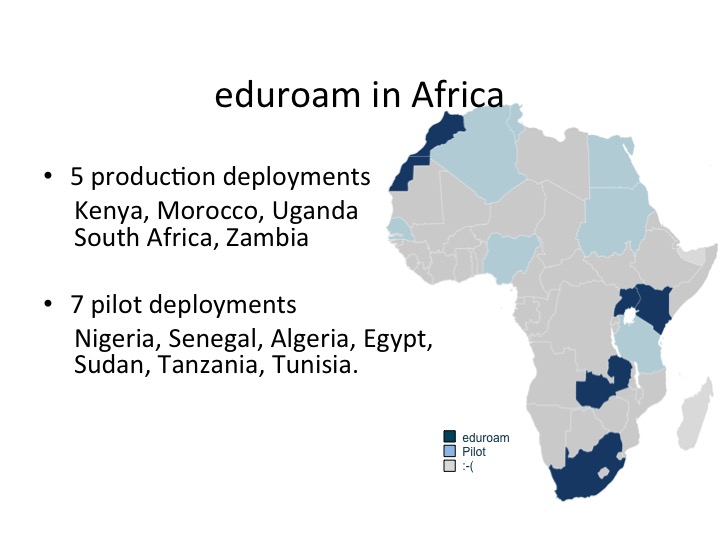Earlier this month, the West and Central African Research and Education Network (WACREN) had their second annual conference in Dakar, Senegal. The pre-meeting workshops and the actual conference were a huge success, with over 150 people attending from Africa, Europe, South America, and North America.
The week kicked off with “Women in ICT in WACREN”, bringing together women from the Sengalese NREN, as well as representatives from AfCHIX, the Network Startup Resource Center (NSRC), and GÉANT, to talk about the challenges women in ICT face in the region. Alas, those challenges are much the same as they are elsewhere in the world. With the cultural expectations around family and limited employment opportunities, women struggle to advance in the ICT arena.
On Monday, focus shifted to “Federated Identity Management – What, Why, and How.” The room featured lively discussion through presentations by Heather Flanagan and Lucy Lynch (NSRC), Nicole Harris and Brook Schofield (GÉANT), and Chris Whalen (NIH). Participants from 11 different African countries were in the room, representing: Togo, Nigeria, Zambia, South Africa, Ghana, Zimbabwe, Cameroon, Niger, Senegal, Uganda, and The Gambia.
This workshop was primarily an introduction to identity federation, focusing on what is required from a campus level up to a regional level. With campus identity management systems often non-existent, the campuses and NRENs in the region have a long way to go before they can be equal partners on the global identity federation stage. The good news is that they can learn from decades of challenges and mistakes from other regions and roll out solid identity management services more quickly than the early adopters were able to manage. Slides from each of the presentations are available online.
Roll-out of eduroam has developed slightly faster than identity federation, with support from the MAGIC Project, but coverage in Africa is still in early development stages.
Some of the challenges within Africa present a need for new approaches to federation. In many of the countries participating in REFEDS to date, federations have been layered across existing local identity infrastructure. Within many of the African countries this information is often sparse and badly populated. This presents opportunities as well as challenges, as it can improve the management of credentials across the board. Both WACREN and Ubuntunet are looking at Federation as a Service style models and considering both fully centralised federation and identity management as well as models that delegate down to individual countries. As part of these investigations, existing services and tools from REFEDS and REFEDS community members are being explored, such as JAGGER (HEAnet), IdP in the Cloud (GARR) and the REFEDS policy template work.
REFEDS and the NSRC are looking forward to continuing this relationship within Africa and bringing the expertise gained from federations worldwide to support the future development of identity services within WACREN and Ubuntunet.
The rest of the week included presentations from scientists and researchers regarding Open Science and associated ICT needs in the region, reports from the Trans African Network Development (TANDEM) effort, and discussions about the goals and potential impact of AfricaConnect2. GÉANT has a long history of partnership within Africa, led by Cathrin Stöver, and the conference clearly demonstrated a happy future for these engagements.

